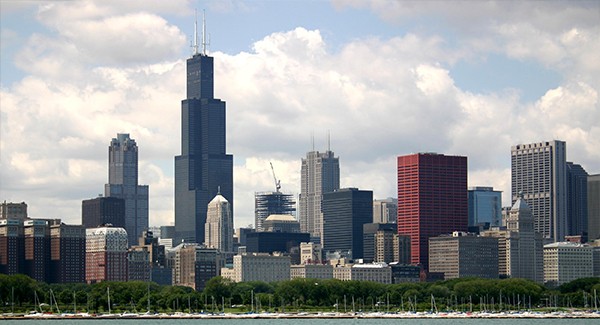Recently, the Chicago City Council passed the Chicago Recycling Ordinance. Effective January 1, 2017, the ordinance requires commercial and multi-unit residential buildings – including apartment buildings, condominium associations, and cooperatives – to provide a system for source-separated, single stream recycling for residents.
Source-separated recycling is a process that:
- Separates recyclable materials from waste before the point of collection of such material by requiring that recyclable material be placed in designated recycling containers, and
- Keeps recyclable material separate from waste until the recyclable material can be returned to the economic mainstream as new, used or reconstituted products.
The ordinance also generally provides that building owners and associations must:
- engage in source-separated recycling;
- equip interior and exterior common areas with sufficient recycling containers;
- post and maintain signs (in maintenance areas and common areas) notifying residents that source-separated recycling is required under Chapter 11-5 of the Municipal Code of Chicago;
- implement an ongoing education program to educate residents about the source-separated recycling program; and
- provide written notice to residents when a change is made or required to be made to the program.
One of the harsh effects of the ordinance is that it allows for the City to levy fines for violations, in an amount between $50.00 and $100.00 for each offense. Additionally, the ordinance states that each day a violation continues shall constitute a separate offense. However, the ordinance will allow an exemption for buildings that can demonstrate an undue economic, safety or space hardship.
We are available to assist you in determining the impact of this Ordinance on your association. Contact KSN at 855-537-0550 or visit our website at www.ksnlaw.com.
Since 1983, KSN has been a legal resource for condominium, homeowner, and townhome associations. Additionally, we represent clients in real estate transactions, collections, landlord/tenant issues, and property tax appeals. We represent thousands of clients and community associations throughout the US with offices in several states including Florida, Illinois, Indiana, and Wisconsin.
This article is made available by the lawyer or law firm publisher for educational purposes only as well as to give you general information and a general understanding of the law, not to provide specific legal advice. By reading this article you understand that there is no attorney client relationship between you and the article author. This article should not be used as a substitute for competent legal advice from a licensed professional attorney in your state. © 2023 Kovitz Shifrin Nesbit, A Professional Corporation.

